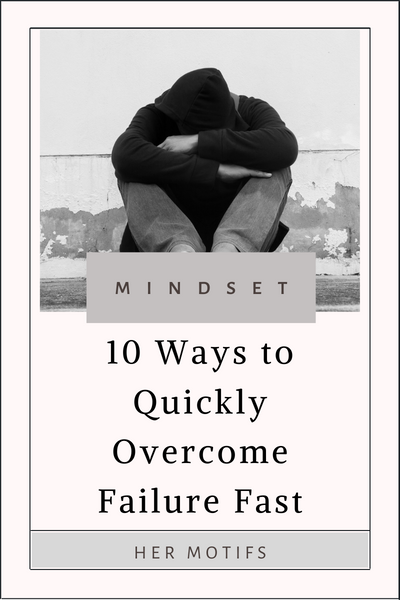10 Powerful Ways To A Happier Mindset
Ways To A Happier Mindset it involves cultivating a positive and optimistic outlook, finding joy in the present moment, and embracing a mindset that promotes overall well-being.
While happiness is a subjective experience, there are numerous ways to foster a happier mindset that can positively impact our lives. In this article, we will explore various strategies and practices that can help shift our perspective, enhance our emotional well-being, and cultivate a more positive mindset. By incorporating these techniques into our lives, we can navigate challenges with resilience, appreciate the beauty around us, and ultimately lead happier and more fulfilling lives.
Happiness is something that everyone strives for in life. But with the stresses and challenges that come our way, it’s easy to get bogged down by negative thoughts and emotions. Cultivating a happier mindset takes effort and persistence, but it’s worth it. Here are 10 powerful ways to cultivate a happier mindset.
.
Table of Contents
Tools to Become Have A Happier Mindset
Cultivating a happier mindset starts with practicing daily gratitude, focusing on the positives in your life. Surround yourself with uplifting people and embrace challenges as opportunities for growth. By prioritizing self-care and limiting negative influences, you can create a more resilient and joyful outlook
.
 Affirmation Cards
Affirmation Cards
Building strength starts with a changed mindset. It is of great importance to have positive outlook.
- Minimal line drawing printed in gold foil
- 40 Inspirational and Motivational Cards
- Great start for self care, self love and mental health
- Cards are printed on thick paper with a glossy finish
- Cards can be used to start Law of Attraction affirmations
.
.
 Daily Goals Journal
Daily Goals Journal
The book has over 100 Lists to Inspire and Motivate Your Growth and help you progress your goals
- Undated Weekly and Monthly Productivity Planner
- A5 Size Refillable To Beat Procrastination
- Easy to Organize different types of goals and milestones or brain dumb activities
.
 Learning to Love Yourself
Learning to Love Yourself
You are beautifully and wonderfully made, just the way you are, never stop loving yourself
- How to Love Yourself Abundantly
- How to Love Your Feelings
- How to Love Your Body
- How to Clear Your Mind
.
 Master Your Beliefs
Master Your Beliefs
A Practical Guide to Stop Doubting Yourself and Build Unshakeable Confidence
- How to effectively to transform your life
- The five characteristics of belief (and why they matter)
- The specific Belief Formula that will bolster your confidence
- The #1 meta-belief that will change everything for you.
- The seven core beliefs that will transform your life
.
.
1. Gratitude
Gratitude is the practice of acknowledging and appreciating the good things in your life. It’s a powerful way to shift your mindset from one of negativity to one of positivity. By focusing on the positive aspects of your life, you can increase feelings of happiness and contentment. To practice gratitude, start a daily gratitude journal. Write down three things you’re grateful for each day. It could be as simple as having a warm bed to sleep in or a good meal to eat. Gratitude is a powerful practice of acknowledging and appreciating the good things in our lives, no matter how small they may seem. Gratitude can help us shift our focus from what we lack to what we have, promoting a more positive outlook on life. It can also increase our overall sense of well-being, reduce stress and anxiety, and improve our relationships with others. Practicing gratitude regularly can help us cultivate a more grateful and joyful mindset. Some things that we are thankful include
- Being thankful for great relationships, experiences, or
- Things that bring us joy, happiness, and fulfillment
.
2. Positive Self-Talk
The way you talk to yourself has a big impact on your mindset. If you’re constantly putting yourself down or criticizing yourself, it’s hard to feel happy and positive. Positive self-talk is the practice of replacing negative thoughts and beliefs with positive affirmations. Instead of saying “I’m not good enough,” try saying “I am capable and worthy.” Start monitoring your inner dialogue and challenge negative thoughts with positive affirmations. Positive self-talk also refers to the practice of consciously controlling the language we use when talking to ourselves, and ensuring that our inner dialogue is supportive, uplifting, and positive. Here are ten benefits of positive self-talk. Some great benefits to self talk include:
- Increased motivation and focus
- Improved relationships with others
- Increased self-confidence and self-esteem
- Greater resilience and ability to cope with challenges
.
3. Mindfulness
Mindfulness is the practice of bringing one’s attention to the present moment and experiencing it without judgment. It involves paying attention to one’s thoughts, feelings, and physical sensations in a non-judgmental way. Mindfulness is the practice of being present and focused on the current moment. Some of its techniques include meditation, deep breathing, or manifestation the life you want. Try incorporating mindfulness practices into your daily routine to help you stay present and focused. It is often practiced through meditation or other exercises that help individuals to focus their attention and bring their awareness to the present moment.
It’s a powerful tool for
- Reducing stress and anxiety
- Increasing feelings of happiness
- Better outlook to your well-being
.
4. Exercise
Exercise is not only good for your physical health, but it’s also great for your mental health. Regular exercise releases endorphins, which can boost your mood and help you feel happier and more positive. Find an exercise routine that works for you, whether it’s running, yoga, or swimming. The key is to find something that you enjoy and can stick to. There are numerous reasons to include exercise into your life and there are many benefits that come with it. Below are some benefits of exercising that we love:
- Clears the mind
- Improves your sleep
- Improves your attitude
- Improves general health
.
5. Social Connections
Humans are social creatures, and cultivating meaningful social connections is essential for happiness and well-being. Spend time with friends, family, or a community that shares your interests. Having a support system can help you feel more connected, supported, and happier.
Social connections refer to the relationships and interactions we have with others. They provide us with a sense of belonging, purpose, and support. Positive social connections can enhance our mood, reduce stress levels, and improve our overall mental health. Engaging in social activities, building friendships, and maintaining healthy relationships can have a significant impact on our happiness and life satisfaction. It is important to prioritize social connections in our lives to improve our overall well-being. Examples of social connections include
- Support Groups
- Educational Groups
- Business Networking
- Mindfulness or Meditation Groups
.
6. Hobbies and Interests
Having hobbies and interests that bring you joy and a sense of fulfillment can have a positive impact on your mindset. Engaging in activities that you enjoy can help you feel happier and more positive. Whether it’s playing an instrument, painting, or gardening, find something that brings you joy and incorporate it into your routine. Hobbies and interests are activities that individuals enjoy doing in their free time. These activities can be anything from playing sports, cooking, reading, listening to music, or even watching movies. Engaging in hobbies and interests is an excellent way to take a break from the daily routine, relieve stress, and boost mood. Hobbies can also be a way to explore new skills and discover new passions. Pursuing hobbies and interests can lead to personal growth and can even be a way to connect with others who share similar interests. Overall, hobbies and interests are an essential part of self-care and can contribute significantly to overall well-being. Hobbies are great at
- Reduces Stress
- Boost Self- Esteem
- Promote Healthy Relationships
- Provides the ability to increase focus
.
7. Self-Care
Taking care of yourself physically, emotionally, and mentally is essential for a happy mindset. This can include things like getting enough sleep, eating healthy foods, and taking time to rest and recharge. Prioritize self-care and make it a part of your daily routine. Self-care refers to any deliberate actions we take to improve our physical, emotional, and mental well-being. It involves taking care of ourselves in a way that ensures we are functioning at our best, mentally and physically. Self-care practices vary from person to person. Examples of self care includes:
- Practicing Mindfulness
- Becoming More Healthier
- Self Auditing by identify areas of weakness
- Self Improving by identify areas of you need growth
.
8. Mindset Reframing
The way you perceive situations and experiences can have a big impact on your mindset. Reframing negative situations as opportunities for growth and learning can help you develop a more positive outlook on life. Focus on the positive aspects of a situation rather than dwelling on the negative. Mindset reframing refers to the process of consciously changing the way you perceive a situation, event, or experience. It involves looking at things from a different perspective, with the goal of altering the emotions, thoughts, and beliefs associated with it. Reframing can be a powerful tool in shifting negative thought patterns and developing a more positive and growth-oriented mindset. Mindset reframing includes:
- Visualize Success
- Embrace Failure
- Change Your Language
- Focus on Personal Growth
.
9. Acts of Kindness
Practicing acts of kindness toward others can have a positive impact on your mindset. Doing something thoughtful for a friend or family member or volunteering can help you feel more positive and connected. Look for opportunities to be kind and generous toward others.
Acts of kindness are actions or behaviors that are intentionally done to benefit others, without any expectation of receiving anything in return. Kindness is a universal language that transcends borders, cultures, and religions. It can take many forms, such as helping a stranger, donating to a charity, or even just saying a kind word to someone who may be having a bad day.
Practicing acts of kindness has been shown to have many benefits for both the giver and the receiver. For the giver, it can boost their mood and increase feelings of happiness and well-being. It can also reduce stress and anxiety and improve overall physical health. For the receiver, acts of kindness can make them feel valued and appreciated, and can help to foster a sense of community and connection. Examples include:
- Paying for someone’s coffee or meal
- Holding the door open for someone
- Volunteering at a local charity or nonprofit organization
- Sending a handwritten note of appreciation or encouragement
.
10. Self-Compassion
Practicing self-compassion is essential for a happier mindset. Treat yourself with the same kindness and empathy that you would extend to a friend. Be understanding and kind toward yourself, even when you make mistakes or face challenges. Self-compassion is the act of being kind, understanding, and non-judgmental towards oneself, especially during times of stress, failure, or pain. It is a practice of treating oneself with the same kindness, concern, and support that one would give to a dear friend. Self-compassion involves three core components: self-kindness, common humanity, and mindfulness. Practicing self-compassion can have many benefits for mental health and well-being. Research has shown that self-compassion can reduce anxiety, depression, and stress, increase resilience, and improve overall life satisfaction.
Some examples of self compassion include:
- Treat yourself with kindness and care
- Recognize that your struggles and challenges are a part of the human experience,
- Practice mindfulness by observing your thoughts and feelings
- Reframe negative self-talk by offering yourself words of kindness and support.
.
Conclusion
In conclusion, having a happier mindset is essential for living a fulfilling life. Incorporating simple habits and practices such as gratitude, mindfulness, positive self-talk, and exercise can make a significant difference in our overall happiness levels. Surrounding ourselves with positive people and cutting out negative influences can also help to improve our mindset. In addition, focusing on personal growth and constantly learning can help to develop a growth mindset and increase our resilience in the face of challenges. By incorporating these habits and techniques into our daily lives, we can cultivate a happier and more positive mindset that will enable us to thrive and achieve our goals. Remember, happiness is a choice, and it’s up to us to make it a priority in our lives.
.
- 100 Valentine Lovers Questions - February 24, 2025
- 2025 New Year Growth Quotes - February 24, 2025
- 2025 Inspiring Self Love Quotes - February 24, 2025







